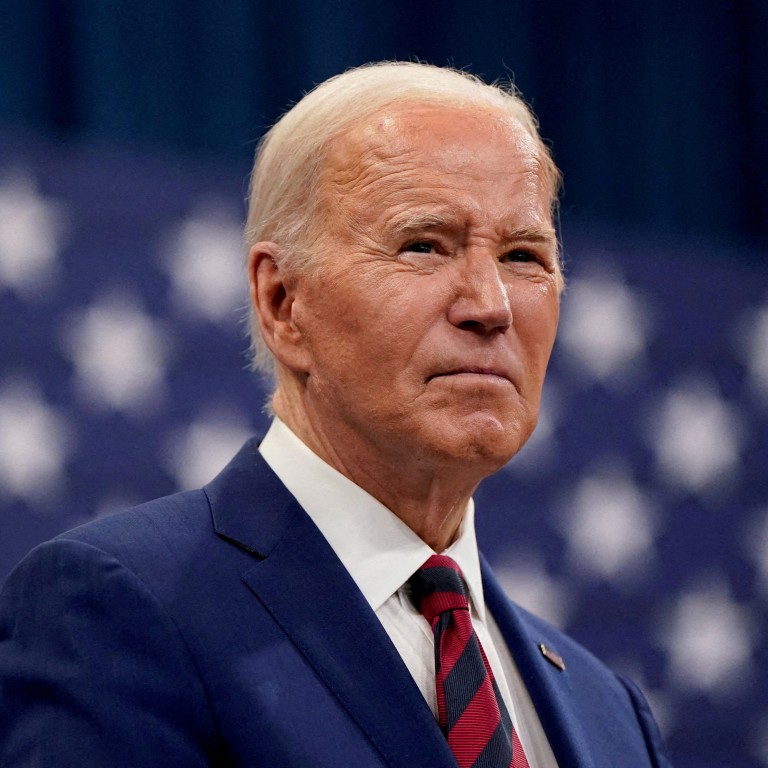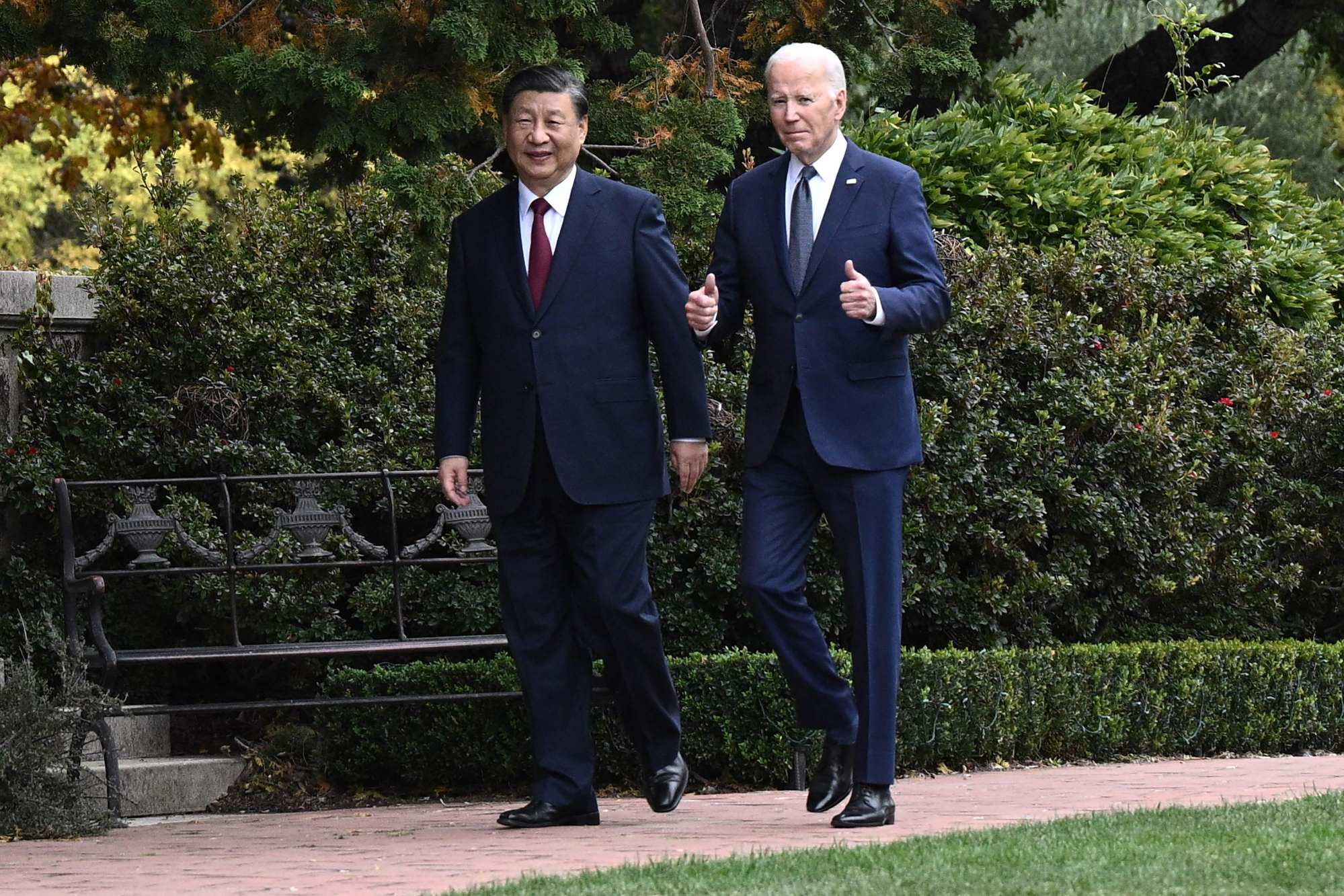
Call between Xi Jinping and Joe Biden conveys stability, deep disconnect in US-China ties: analysts
- ‘Constructive’ conversation took place arranged around priorities that American leader ‘holds so seriously’, says national security spokesman
- If US insists on ‘suppressing China’s hi-tech development’ and depriving it of legitimate right to develop, country ‘will not sit idly by,’ Xi says
“Summits are important, but there’s no replacement for regular top-level communication, especially given the nature of the Chinese system where the person at the top is the one who matters most,” Rosen added.

During the call, Xi accused the US of launching “an endless stream of measures to suppress China’s economy, trade, science and technology” as more mainland companies have been added to American sanction lists, according to Xinhua.
“This is not de-risking, but creation of risks,” it reported Xi as saying.
“If the US insists on suppressing China’s hi-tech development and depriving China of its legitimate right to develop, we will not sit idly by,” he added.
US National Security spokesman John Kirby at a press briefing after the call said Biden “feels obligated and responsible for protecting the national security interests of the United States”.
China-US relations: state media backs Xi Jinping in call for ‘brighter future’
“Much of his conversation with President Xi this morning – which was candid and constructive, very professional, businesslike – was arranged around those priorities that President Biden holds so seriously,” Kirby added.
While the US and China not seeing eye to eye on de-risking and technology restrictions “is nothing new”, it has become “a new normal”, said Rosen, adding: “We’re gonna be hearing this for a long time.”
Tuesday’s call clearly highlighted that tech competition was China’s primary concern in bilateral relations moving forward, according to Dominic Chiu of Eurasia Group.
“Xi’s statement that China will ‘not stand idly by’ is a sign that Beijing will prepare retaliatory options if the issue is left unaddressed. This is what Xi meant by creating risks from de-risking,” Chiu said.
A further message from the Chinese read-out was that the Biden administration’s vow to continue communicating its next steps on tech restrictions targeting China would not satisfy Beijing’s demand for fair treatment, he added.
Yun Sun of the Stimson Centre said the call represented a continuation of the tone and directions set forth in San Francisco last November.
“Even though very few things are new, it is more important that the leaders talked to each other,” Sun said. “It sends a message of stability to the rest of the world and also signifies the pursuit of stability by both sides.”
Fewer than 3 in 10 Americans support China TikTok bill: poll
Biden “reiterated our concerns” about TikTok’s ownership, Kirby said in his briefing.
“He made it clear to President Xi that this was not about a ban of the application, but rather our interest in divestiture so that the national security interest and the data security of the American people can be protected.”
Asked whether there had been any “progress” in reaching a deal, Kirby said only that “the legislation hasn’t reached [Biden’s] desk, and it’s still on Capitol Hill”.
Andrew Bishop of Signum Global Advisors believed the Xi-Biden call was “not likely a harbinger of stability”, given the “hawkish” tone in parts of the Xinhua read-out.
US Treasury Secretary Janet Yellen to press China on green energy spending
“Senior US-Chinese officials’ prior interactions over the past couple years have not been correlated with stability,” Bishop said.
She will press her Chinese counterparts on “unfair trade practices” and underscore the global economic consequences of Chinese industrial overcapacity, while working to expand bilateral cooperation on countering illicit finance, it added.
US Secretary of State Antony Blinken is also scheduling a visit to China in the coming weeks, and the two sides were expecting a call between their top military officials “soon”, according to the White House.

